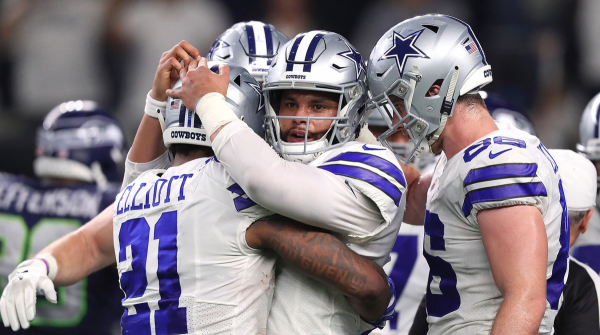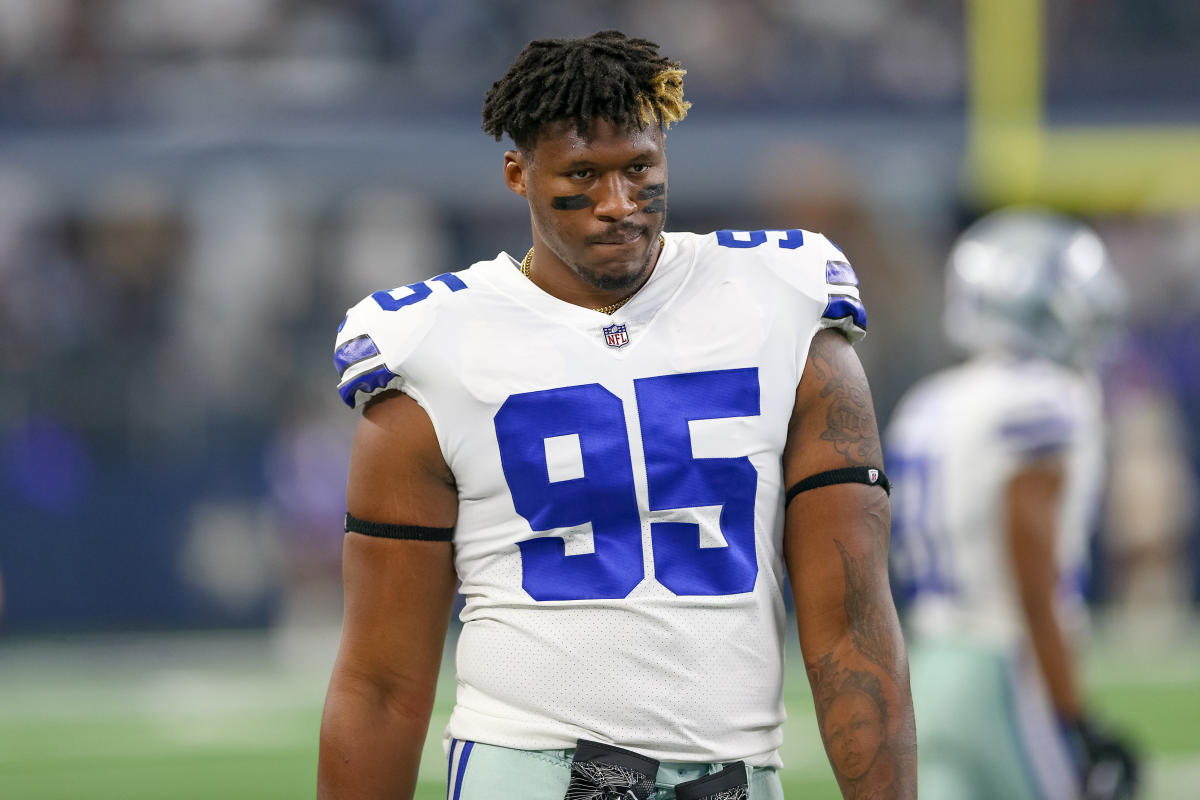 Why 2018’s Power Teams Are Sitting Out 2019 Free Agency
Why 2018’s Power Teams Are Sitting Out 2019 Free Agency
The Cowboys—loaded with young talent that they want to be able to take care off down road—are an example of why last season’s playoff teams have mostly avoided making a free agency splash so far. Why spend big (read: overpay) in what’s seen as a weak year for free agents?
By
Albert Breer
March 18, 2019
The Cowboys weren’t in a position to go hog wild last week anyway—as of Sunday morning, they sat with $24.3 million in cap space and cadre of young stars to lock up. But even if their situation were different, and they did have a little more breathing room to spend, chances are they’d still have sat out
all the craziness.
It is, quite honestly, what the Jones family has learned, through success and failure, about running a team in the NFL’s salary cap era, now in its 26th year.
“The biggest thing is just that free agency, I just don’t think you can make a living there,” Dallas COO Stephen Jones said over the phone around lunchtime on Sunday. “That’s what we’ve always said. I think you’re overpaying in free agency most of the time. [Free agents] are overvalued, because you’re competing in a market where you’ve got teams that don’t have as many players they have to spend on, have to use cap space on.
“And the other thing is, I don’t think you’re ever one player away. It’s a building process. You’ve got to have some really good quarterbacking to win championships, but you’ve got to put a good team around him. That whole theory that you’re one player away, it’s one that we don’t buy into like you might’ve in the past.”
Here’s the genesis of my conversation with Jones and a handful of other teams over the weekend: I spent some time looking at which teams have and haven’t spent since the market opened in earnest last Monday (and earlier than that on street free agents). What I found was staggering. And it’s so simple that you can really explain it in five words.
Most good teams didn’t spend. And here’s proof, using
Spotrac’s offseason spending tracker for 2019 as our guide:
- Five of the six lightest-spending teams made the playoffs last year, and two of the three lightest spenders played in the Super Bowl. Ten of the 12 playoffs teams from last year are in the bottom 14 in spending thus far. And two of the four in that cluster that didn’t make the playoffs (Atlanta, Carolina) have been in the Super Bowl and made the playoffs multiple times over the last four years.
- That leaves two of the 18 heaviest spenders that made the playoffs. One was eighth (Philly), the other was 12th (Baltimore).
- It’s not unusual that it’d skew this way—good teams don’t spend because they’ve already paid a lot of their own guys and likely don’t feel as desperate. But a quick look at the recent past shows that this year the divide between the habits of the haves and have-nots was much more pronounced.
So how do you explain it? Well, that part’s simple too.
“It’s just a bad class,” said one NFC exec. “This class was always ‘buyer beware.’ Even the guys who got franchised, not that they’re one-year wonders, but players like Frank Clark, Dee Ford—it’s more just that you wouldn’t be sure if you would want to go invest significantly in them.”
And maybe that’s why Bill Belichick was in Barbados while the rest of us were getting all hysterical back here.
Dak Prescott, Byron Jones, Amari Cooper, DeMarcus Lawrence and Jaylon Smith are entering contract years. Zeke Elliott is too, though the Cowboys hold a fifth-year option for 2020 on him. And the pipeline isn’t dry after that, with Leighton Vander Esch and Chidobe Awuzie having potential to get really rich down the line.
It’s an issue for Dallas, of course. But not a bad one, as those go.
“It’s what you want. You want to draft players like this,” Jones said. “I saw somebody write, ‘They’ve drafted well, they’ve got a bunch of players who’ve made Pro Bowls and All-Pros.’ What more do you want? You want to win a Super Bowl, and that’s hard. But other than that, you couldn’t ask for a better problem—to have young players that are homegrown, that, you know how they’re going to react. There are no surprises.
“In free agency, you get guys in and you find out a lot about them that you didn’t necessarily know. I mean, when we let players go, there’s a reason.”
So Dallas’ plan for this offseason was never not to spend. It was to not spend on someone else’s players, because the Cowboys have enough of their own to take care of.
As Jones sees it, signing an outside free agent would probably mean letting one of the aforementioned guys go down the line, which is a tradeoff he wasn’t willing to make. Because, as he said, those guys were available for a reason, and then, as the process twists itself into a pretzel, they get overvalued on the market
because of that availability.
“I’ve always said it—good players get paid like they’re great, average ones get paid like they’re good, and so on,” Jones continued. “Our philosophy, at the end of the day, is that if we sign a guy in free agency right now, we’re basically giving up a player on our roster at some point that we’ll want to keep, whether it’s a Jaylon Smith, it’s Chidobe, it’s Byron Jones.
“Obviously, we’re going to take care of these top four guys—Zeke and Dak and Amari and D-Law. And then we’ll get into the next wave of guys. We’ve got some needs, don’t get me wrong. Are there some players that could help us? For sure. But …”
The Cowboys would rather keep their own guys than roll the dice on someone else’s.
And they aren’t the only ones.
The Rams scooped up Eric Weddle at an affordable rate but haven’t taken their customary swings, having just locked up Aaron Donald, Todd Gurley and Brandin Cooks, with Jared Goff’s contract on the horizon. The Patriots didn’t go crazy bidding for Trey Flowers, Adam Humphries or Jesse James. And others, like the Chargers and Chiefs, have big-ticket contract situations coming.
....Continued

sports.yahoo.com

